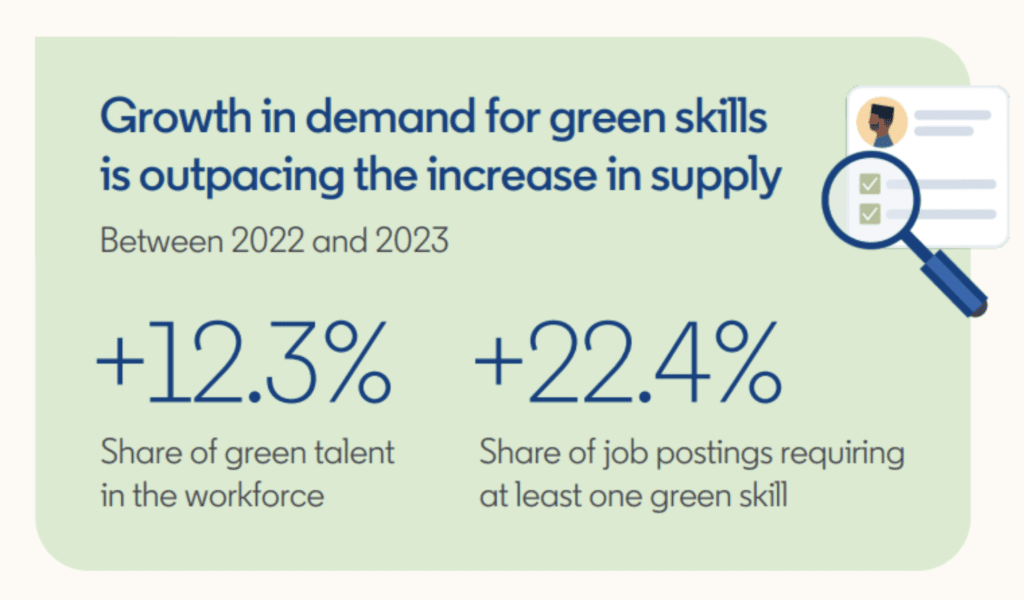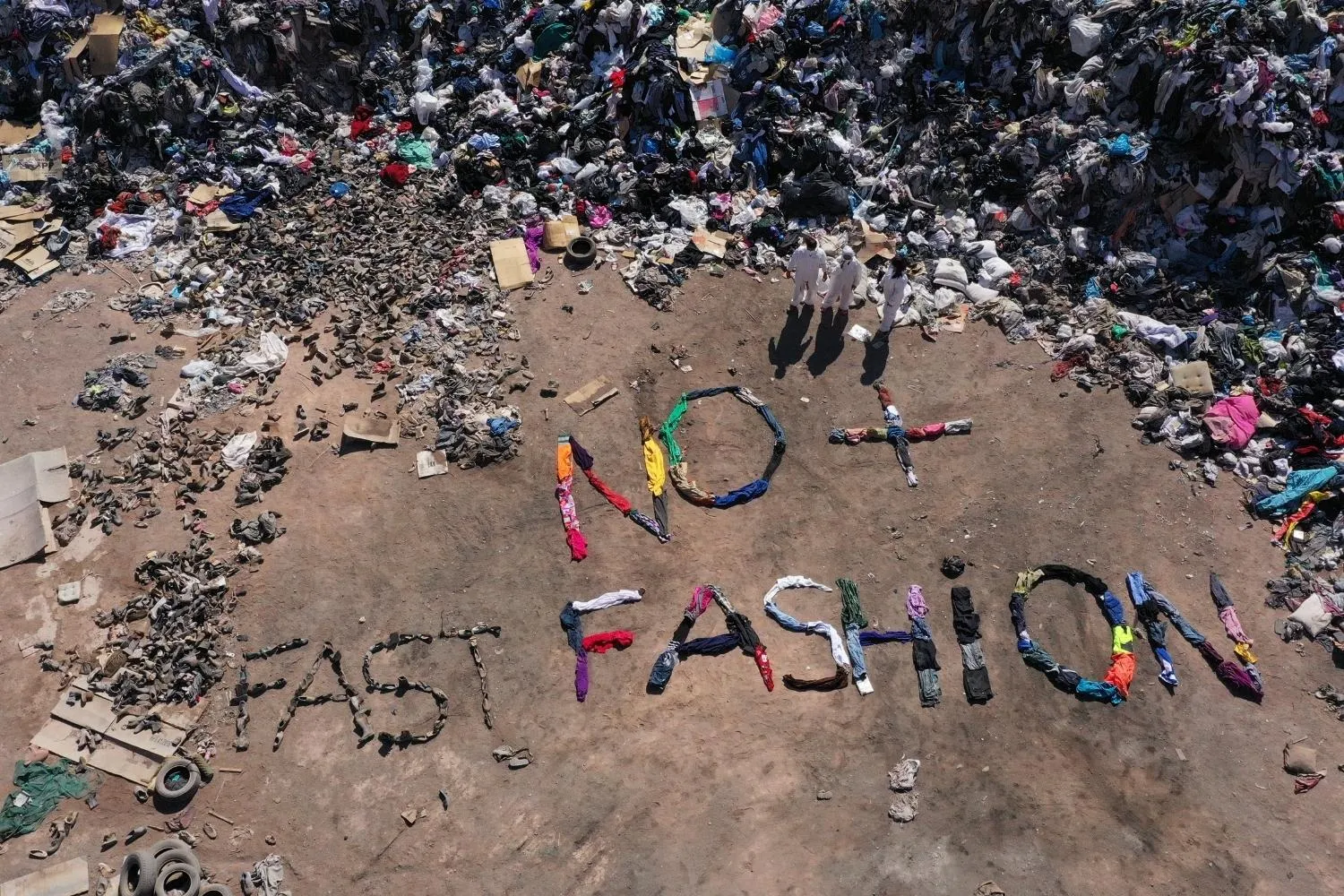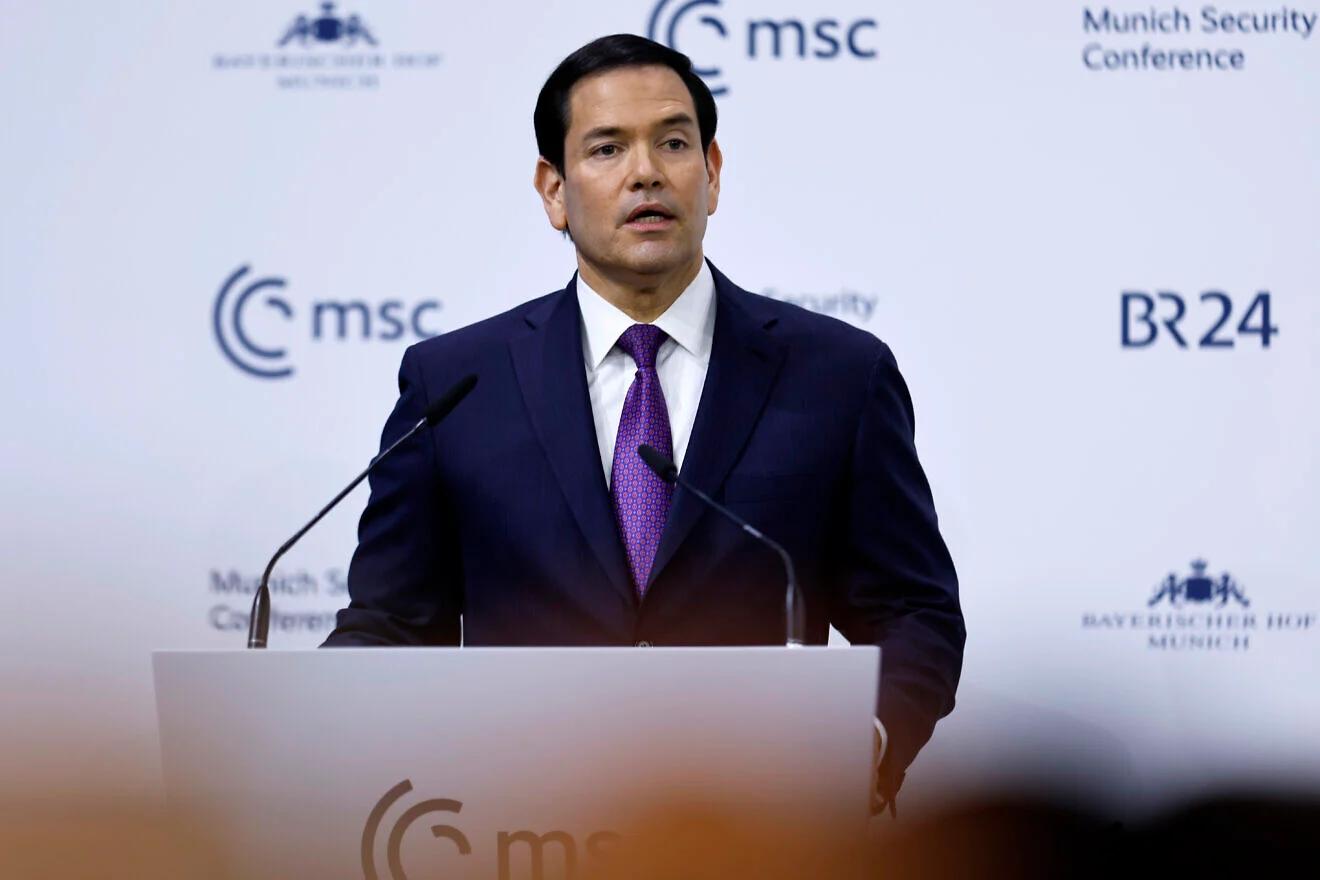Key Impact Points:
- Demand for green skills is projected to double by 2050, but current supply isn’t keeping pace, leading to a significant skills gap.
- Hiring rates for green talent are significantly higher than average, highlighting an urgent need for skilled professionals.
- LinkedIn calls for immediate action, urging governments and COP29 to prioritize green skills development in climate strategies.
LinkedIn’s latest data reveals a looming green skills gap as demand for environmentally focused expertise is set to double by 2050. Despite the skyrocketing need, the current supply of green talent is insufficient to meet global demands.

Surging Demand vs. Insufficient Supply
Demand for skills in hydrogen and hydrogen storage has increased by 224.5% and 130.7%, respectively. However, the overall supply of green talent isn’t keeping up with this rapid growth.
Sue Duke, LinkedIn’s Public Policy and Economic Graph Vice President, said, “Every climate goal around the world, every commitment made, is at risk if we don’t have a workforce that can deliver the change we urgently need. The economic opportunity is there, and a promising skills-based pathway exists. This year is an inflection point for our planet—and for workers—as countries and companies write new climate commitments; they must include explicit investments in the green workforce.”
Elevated Hiring Rates for Green Talent
The hiring rate for green talent globally is 54.6% higher than for the overall workforce. In the United States, demand for green talent grew by 9.8%, while supply increased by just 3.1%, resulting in a hiring rate that’s 80.3% higher than average.
In Ireland, demand grew by 22.1% with a supply increase of 6.3%, leading to a 79.8% higher hiring rate for green talent. Similarly, in the United Kingdom, green talent hiring rates are 72% higher than average, despite a 46% rise in demand and only a 5.3% increase in supply.
Even in countries where green job postings have decreased—like Finland and the Netherlands—green talent continues to be hired at more than twice the rate of other talent.
Call to Action Ahead of COP29
LinkedIn’s report underscores the critical need for immediate action to expand the green talent pool. The platform recommends that governments incorporate skills development plans into their climate strategies and their Paris Agreement contributions.
With COP29 approaching in Baku on November 11, LinkedIn is calling for a formal declaration to accelerate the development of the global climate workforce. This aims to ensure that climate ambitions are matched with effective workforce expansion plans.
The Soft Skills Gap in Sustainability
In related news, a study by Oxford Brookes Business School and the Climate Change Coaches reveals that a lack of soft skills among sustainability professionals is hindering climate progress. The study, titled “Holding Back Climate Progress: Sustainability’s Critical Skills Gap,” surveyed 159 sustainability professionals across various levels and regions.
The findings show that while soft skills are recognized as important, they are not consistently prioritized in training programs. Notably, 60% of respondents reported that soft skills training receives low priority, even though these skills are more sought after than technical expertise.
Key soft skills identified include fostering teamwork, empowering individuals, and providing clear, motivating direction for managing organizational change. The study also highlights that sustainability practitioners often face significant emotional strain due to the isolating and challenging nature of their roles.
Zoe Greenwood, co-founder of Climate Change Coaches, noted, “This new study shows that organisations need to prioritise these soft skills and foster a supportive culture to really drive progress towards climate goals while addressing issues of overwhelm and burnout. As sustainability roles evolve, it’s clear we urgently need to develop and support a talent pipeline with 21st-century climate leadership skills.”
Related Article: Financing the Green Energy Transition: How Strategic Investment Can Drive a Sustainable Future

 Follow SDG News on LinkedIn
Follow SDG News on LinkedIn











